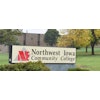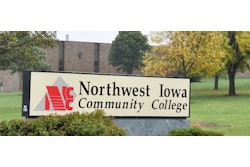Imagine a high school senior in California who has maintained an A average all through grade school. She has numerous extra-curricular activities on her record. She dreams of attending the University of California-Berkeley. She applies and is accepted. However, when applying for federal financial aid, she finds out she doesn’t qualify. When she applies for state aid, she’s told no once again. Though she’s eligible for in-state tuition, her working-class parents don’t have the $22,000 it will take to pay for a year at Berkeley. Dejected and frustrated, she wonders if she’ll be able to get any job that could make use of her abundant talents, now that college seems out of reach.
Such is the plight of an undocumented student like the keynote speaker at a recent Community College League of California fund-raising dinner who was eligible to receive only private scholarships that “weren’t enough to support a very expensive education,” said CCLC CEO Scott Lay.
“She looked back at the community college, and we’re proud of that. We’re excited that we’re the only opportunity for students like that, but that’s not acceptable. If a student is prepared to go to a flagship institution and become an economic engine for the state of California, we need to find ways to support that,” Lay added.
Mt. San Antonio College speech professor and California Community College Academic Senate Executive Committee member Phillip Maynard says he’s had many undocumented students in his office who have told him their stories. He says some of these students, with help from benefactors in the community and elsewhere, “first started at Mt. SAC as a freshman, got into our honors program and went right on into UCLA.
“We are the largest community college system in the country. And we know that we have many undocumented students — that is the reality. And I think at times, we don’t look at the reality close enough,” Maynard adds.
Dr. Gerardo E. de los Santos, CEO of the League for Innovation in the Community College, calls “serving the undocumented” one of the major challenges community colleges are facing, as community colleges have become the only affordable option for many undocumented students having to come up with the cash themselves to pay tuition.
Nevertheless, numerous pieces of legislation, both for and against financial aid for undocumented students in states like California, are confusing for undocumented students who’ve grown up here, matriculated through the public school system and now look to continue their education at community colleges.
“What is the coin of the realm here is financial support for these students to be able to enter into the gateway of higher education through community colleges. That is one of the biggest barriers,” says de los Santos.
The Only Affordable Option
Earlier this year, California Gov. Arnold Schwarzenegger vetoed the latest version of the California Dream Act, which would allow undocumented students to be eligible for certain types of financial aid such as community college fee waivers. In his veto statement, the Republican governor said, “it would not be prudent to place additional strain” on state resources to provide financial aid to students “without lawful immigration status.”
Although undocumented students wouldn’t qualify for financial aid, Schwarzenegger points out that “under existing law, undocumented students who meet the required criteria already qualify for the lower in-state tuition rate while attending California public colleges and universities.” De los Santos says the plight of undocumented California students mirrors what is happening in other states across the nation, in that they are coping with a hodge-podge of laws both for and against granting them financial aid.
“These types of policies are chopped up and are confusing and are contradictory. The governor of California vetoed the Dream Act. Yet, there is controversy about providing driver’s licenses. So what is the rationale behind trying to push forward some legislation and not others that are in the same ballpark?” de los Santos says.
Long Beach City College’s dean of financial aid and veteran’s affairs, Toni M. DuBois, says trying to find aid for students who emigrated illegally is a major challenge. Once again, only private dollars are available, and she has found particular success with the college’s Buy-a-Book program, which helps undocumented students buy books with help from the LBCC Foundation.
Although the college allows students to get funds from the Buy-A-Book program only once, officials hope that the taste of college success will spur students on. “At least they can see some success and maybe catch on fire about education, so that’s our hope,” DuBois says.
Dr. Willard Clark Lewallen, president of West Hills College Coalinga, says his community college is “really struggling” with how to serve its undocumented students. However, Lewallen says West Hills is actually the only community college in California to receive a federal College Assistance Migrant Program grant, which provides federal financial aid to migrant farm workers and their children.
Lewallen says though the Central Valley area served by West Hills College serves as a home to numerous migrant workers, only about 100 or so students have the necessary documentation to qualify for CAMP Grants.
“For a number of students who are not in that migrant population, [in-state tuition] helps a lot,” Lewallen says, adding that documented migrant students in the Central Valley are eligible both for in-state tuition and CAMP Grants. “But if they’re undocumented, they’re stuck. They can’t get the federal financial assistance. It’s sort of a catch 22. We’re trying to figure out what to do,” he says.
“Clearly, there’s a disconnect between politics and economic reality,” says Lay of CCLC. “We believe in economic opportunity for every permanent resident of California and there are some that have limited documentation. We’re working with them to get permanent residency status, and it’s frustrating. There’s no other word [to describe it] than frustration.”
Political Pitfalls
Three of Schwarzenegger’s nominees to the California Community Colleges Board of Governors have paid a steep price for their support of an earlier version of the Dream Act, which the governor vetoed last year. Republican state senators have blocked the confirmation of the nominees, who can serve on the board for only one year while awaiting confirmation.
John W. Koeberer had to leave the board in June, after his nomination languished in the Senate for a year. Rose Del Castillo Guilbault had to leave the board in October under similar circumstances. And Katherine L. Albiani will have to vacate her seat in January, if, again, GOP senators block her confirmation. “Our Board of Governors took a position, and we were in alignment with that and they supported [the DREAM Act],” says California Community Colleges Academic Senate President Mark Wade Lieu.
“Our Board of Governors has taken a huge political hit because of their support. The Republicans in our state Legislature blocked the confirmation of our Board of Governors appointees, and as a result, we’ve already lost two, and we’re down to lose a third.”
Though faculty sentiment on the broad subject of immigration reform runs the gamut of opinions, Lieu says faculty are generally united on the subject of helping students who may have been brought to the United States by undocumented parents and are stuck in the quandary of living illegally in the only country they have ever known.
“When we’re talking about students, I think faculty basically speak with one voice. If the students are here, and they want access to education, we are there to support them,” Lieu says.
De Los Santos adds that the local community college is the first stop for many undocumented students looking for “opportunities to better themselves and better their families. It becomes challenging to our student services workers, to our faculty, when there’s competing policies and legislation. But there are some that are taking the step to say, ‘If our state will not provide in-state tuition waivers for undocumented students, then we will go out and raise scholarship money that will be independent that will help bridge that gap to get at and get over that barrier for students.’”
–David Pluviose
There are currently 0 comments on this story.
Click here to post a comment
© Copyright 2005 by DiverseEducation.com















